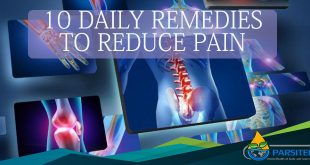Hypertensive heart disease refers to heart conditions caused by high blood pressure.
It’s not a single disease, but rather, a number of different heart disorders all caused by the same thing: the heart working under increased pressure. Hypertensive heart disease includes, among other conditions, heart failure, thickening of the heart muscle, and coronary artery disease. Coronary heart disease, for example, occurs when high blood pressure causes narrowing of the blood vessels that supply your heart with blood and oxygen.
Hypertensive heart disease can be dangerous and is the leading cause of death from high blood pressure.
Types of Hypertensive Heart Disease
In general, the heart problems associated with high blood pressure relate to the heart’s arteries and muscles.
Narrowing of the Arteries
The coronary arteries transport blood to your heart muscle. When high blood pressure causes the blood vessels to become narrow, blood flow to the heart can slow or stop. This condition is known as coronary heart disease (CHD), also called coronary artery disease. CHD makes it difficult for your heart to function and supply the rest of your organs with blood. It can put you at risk for heart attack from a blood clot that gets stuck in one of the narrowed arteries and cuts off blood flow to your heart.
Thickening and Enlargement of the Heart
High blood pressure makes it difficult for your heart to pump blood. Just like other muscles in your body, regular hard work causes your heart muscles to thicken and grow. This alters the way the heart functions. These changes usually happen in the main pumping chamber of the heart known as the left ventricle. The condition is known as left ventricular hypertrophy (LVH).
In addition, CHD can cause LVH and vice versa: When you have CHD, your heart must work harder. If your heart is enlarged because of LVH, it can compress the coronary arteries.
Complications
Both CHD and LVH can lead to:
- heart failure, when your heart is unable to pump enough blood to the rest of your body
- arrhythmia, when your heart beats abnormally
- ischemic heart disease, when your heart does not get enough oxygen
- heart attack, when blood flow to the heart is interrupted
- sudden cardiac arrest, when your heart suddenly stops working, you stop breathing, and you lose consciousness.
- stroke and sudden death can also occur
Who is at Risk for Hypertensive Heart Disease?
Although the main risk factor for hypertensive heart disease is high blood pressure, your risk increases if you are overweight or get too little exercise. Smoking and eating high-fat foods and a diet rich in cholesterol also increase your risk.
You are more prone to heart disease if it runs in your family. Also, men are more likely to get heart disease than women, at least until the age of menopause; men and postmenopausal women are equally at risk. As you grow older, your risk for heart disease increases whether you are male of female.
Heart disease is the leading cause of death for both men and women in the United States. In 2008, over 616,000 Americans died from heart disease (CDC).
Identifying the Symptoms of Hypertensive Heart Disease
Symptoms vary depending on the severity of the condition and progression of the disease. You may experience no symptoms or your symptoms may be obvious. When blood flow through the heart is poor, a common symptom that results is chest pain (angina).
Other symptoms include tightness or pressure in the chest, shortness of breath, and fatigue. It is also common to feel pain in the neck, back, arms, or shoulders. You may also have a cough and/or lose your appetite. Foot or ankle swelling can be a sign of heart failure.
You need emergency care if your heart is suddenly beating rapidly or irregularly. If you faint or have severe pain in your chest, visit the emergency room immediately.
Regular physical exams will indicate whether you suffer from high blood pressure. If you do have high blood pressure, you should take extra care to look out for symptoms of heart disease.
Testing and Diagnosis: When to See the Doctor
Your doctor will review your medical history, conduct a physical exam, and run some lab tests to check your kidneys, sodium, potassium, and blood count. One or more of the following tests may be used to help determine the cause of your symptoms:
- An electrocardiogram monitors and records your heart’s electrical activity. The doctor will attach patches to your chest, legs, and arms. The results will be visible on a screen, and your doctor will interpret them.
- An echocardiogram takes a detailed picture of your heart and using ultrasound.
- A coronary angiography examines the flow of blood through your heart. A thin tube called a catheter is inserted through an artery in your arm or groin and up into the heart.
- An exercise stress test looks at how exercise affects your heart. You may be asked to pedal an exercise bike or walk on a treadmill.
- A nuclear stress test examines the flow of blood into the heart. The test is usually conducted while you are both resting and exercising.
Treating Hypertensive Heart Disease
Treatment for hypertensive heart disease depends on the seriousness of your illness, your age, and your medical history.
Medication
Medications help your heart in a variety of ways. The main goals are preventing the blood from clotting, improving the flow of blood, and lowering your cholesterol. Examples of common heart disease medications include:
- water pills that help to lower blood pressure
- nitrates to treat chest pain
- statins for treating high cholesterol
- beta-blockers for lowering blood pressure and reducing the amount of oxygen used by the heart
- aspirin to prevent blood clots
It’s important to always take all medications exactly as prescribed.
Surgeries and Devices
In more extreme cases, you may need surgery to increase the flow of blood to your heart.
If you need help regulating your heart’s rate or rhythm, your doctor may surgically implant a battery-operated device called a pacemaker in your chest or abdomen. A pacemaker produces electrical stimulation that causes cardiac muscle to contract. Implantation of a pacemaker is important and beneficial when cardiac muscle electrical activity is inappropriately slow or absent.
Cardioverter-defibrillators (ICDs) are implantable devices that can be used to treat serious, life-threatening cardiac arrhythmias.
If your condition is especially severe, a heart transplant or other heart-assisting devices may be necessary.
Lifestyle Changes
Lowering your blood pressure and cholesterol by eating a healthy diet and monitoring stress levels are possibly the best ways to treat and prevent heart problems.
Maintaining a healthy weight, getting adequate sleep, and exercising regularly are common lifestyle recommendations. Talk to your doctor about ways to improve your overall health.
Long-Term Outlook
Recovering from hypertensive heart disease depends on the exact condition and its intensity. Lifestyle changes can help to keep the condition from worsening in some cases. In some severe cases, medications and surgery may not be effective in controlling the disease.
Preventing Hypertensive Heart Disease
Monitoring and preventing your blood pressure from getting too high is one of the most important ways to prevent hypertensive heart disease. Eating a healthy diet that is low in salt and unhealthy fats will help reduce your risk. Exercising regularly, maintaining a healthy weight, reducing alcohol intake, and not smoking are also important preventive steps.
 Parsi Teb Physical and Mental Health Journal
Parsi Teb Physical and Mental Health Journal 



